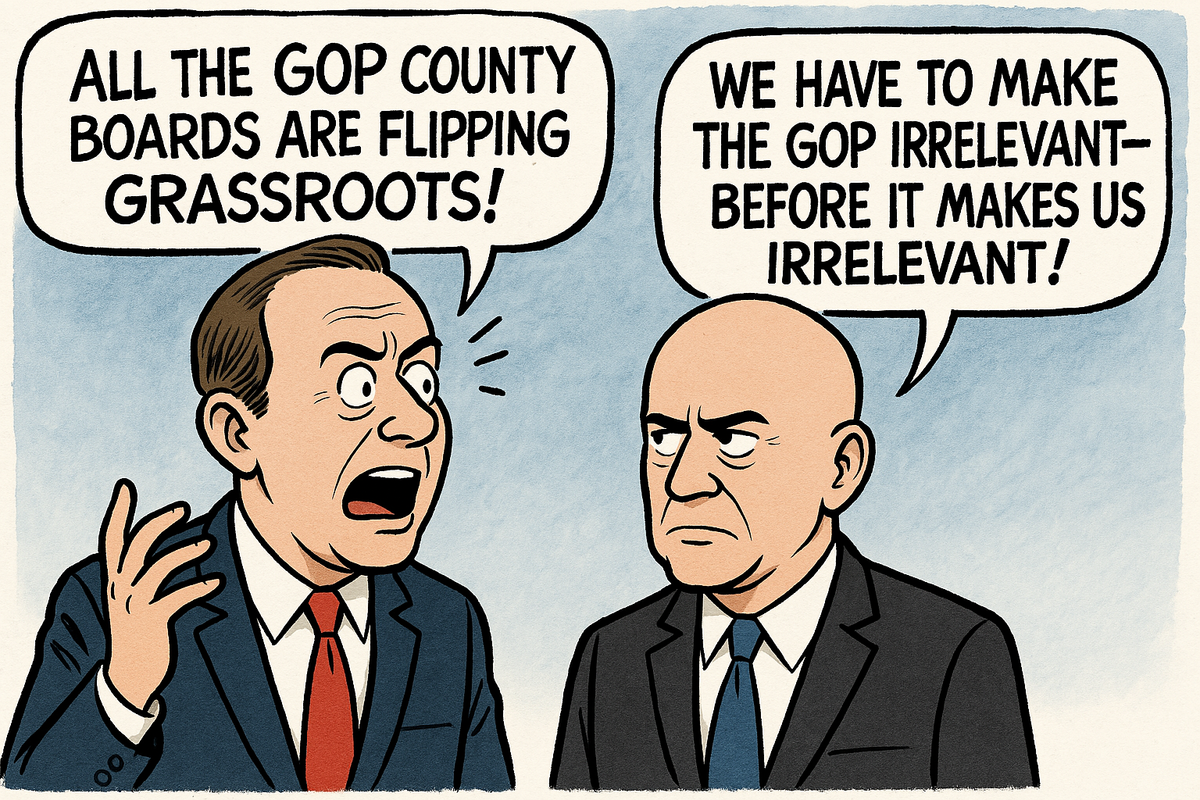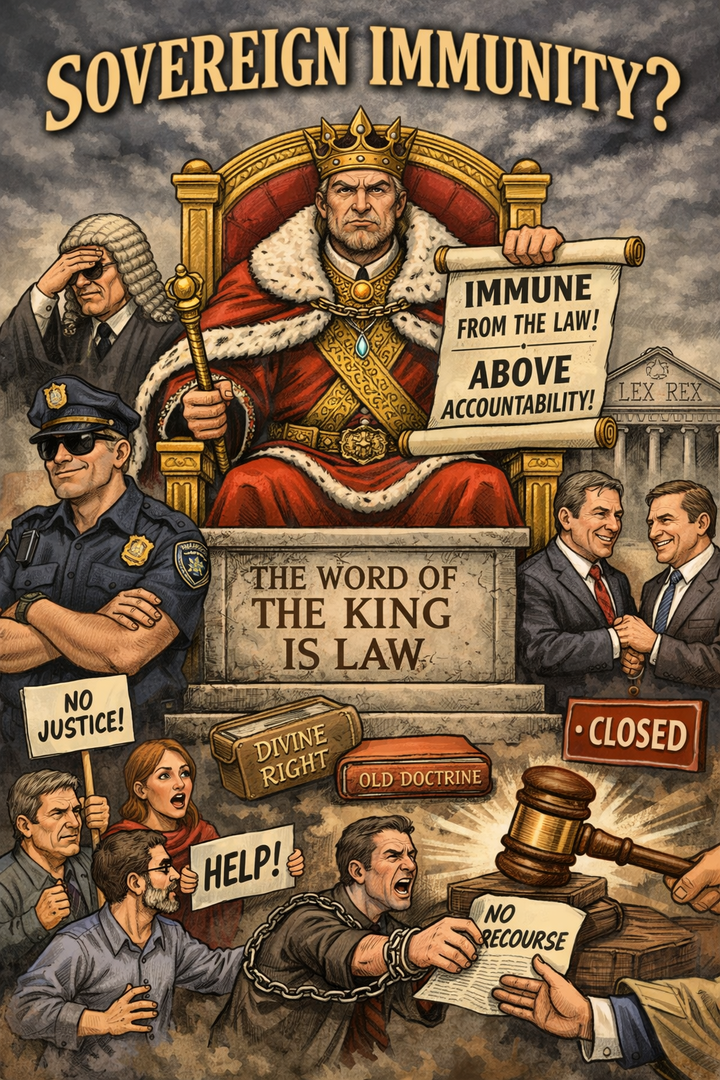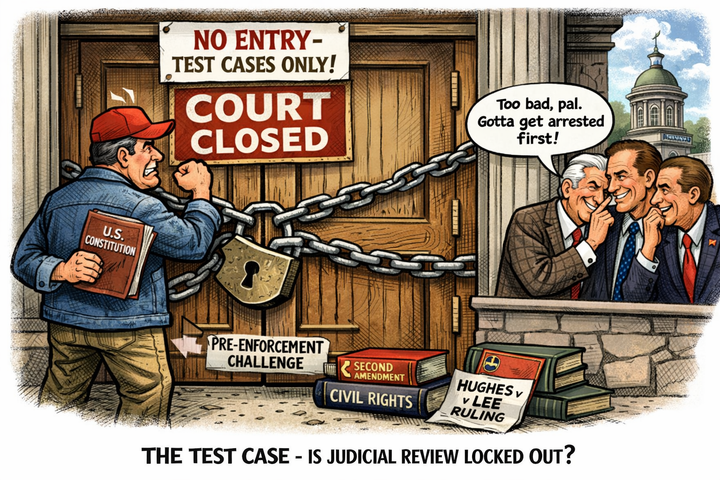HB0855, headed to the House floor, strips local parties of their right to hold caucuses—forcing costly primaries and violating core constitutional protections. Critics call it a blatant power grab meant to silence grassroots momentum and GOP self-rule.
House Bill 0855, a controversial measure that would prohibit Tennessee county political parties from using caucuses or conventions to nominate candidates for local partisan offices, passed through the House State and Local Government Committee on Tuesday. But as the legislation advances, so do serious questions—about its constitutionality, its fiscal implications, and its political motivations.
A Private Party Stripped of Its Autonomy?
GOP State Executive Committeeman Chris Morris, representing Senatorial District 28, testified forcefully against the bill, calling it a violation of the Republican Party’s constitutional rights.
“This bill is clearly unconstitutional,” Morris told the committee. He pointed to Supreme Court precedents like Tashjian v. Republican Party of Connecticut (1986) and Eu v. San Francisco Democratic Committee (1989), which established that political parties have the First Amendment right to govern their own nomination processes.
Yet despite this, the committee voted the bill forward.
Legal Counsel Weighs In—But With Caveats
In a pivotal exchange, Rep. Greg Martin asked legislative legal counsel Matt Mundy whether the bill passed constitutional muster. Mundy acknowledged that courts have upheld a state’s right to require primaries or conventions for candidate nomination. Based on existing case law, he said HB0855 is not unconstitutional on its face.
But that phrase—“on its face”—leaves open more questions than it answers. Mundy clarified that while the bill doesn’t overtly violate constitutional rights as written, legal challenges could arise depending on how the law is applied—particularly if it collides with party bylaws or is used to compel political associations the party does not wish to make.
That could mean the state is walking a fine line between prescribing a method and violating a party’s right to control its internal governance. And if the law’s surface constitutionality is all that’s required, does that mean its real-world impacts—including burdens on rural counties or interference with party association—don’t matter?
These are questions that the legislators on the committee yesterday seemed to have no real use for.
No Fiscal Note—And No Real Answers
Rep. Todd Warner raised what should have been an obvious concern: Why is there no fiscal note on a bill that may force dozens of counties to hold expensive, two-week-long partisan primaries?
Rep. Lee Reeves, the bill’s sponsor, offered a curious response: that the bill merely codifies existing practice.
But that doesn’t explain why counties—especially smaller, rural ones—are being stripped of the safety net they’ve long depended on. While many of these counties do hold primaries, they’ve retained the option of using a caucus or convention when funds are tight. That flexibility has often made the difference between holding a partisan election or reverting to a nonpartisan ballot.
Now, under HB0855, that option would be gone—and counties would be forced to either find tens of thousands of dollars to fund an election or strip their races of party affiliation altogether.
Critics say that’s not just bad policy—it’s a direct hit to local autonomy.
“Counties that may never have used a caucus every cycle still knew they had the option,” Morris said after the vote. “This bill takes that choice away. If something hits their budget—like storm damage, a school emergency, or equipment failure—they’ll have to cut public services or walk away from running a partisan race.”
The average cost of a partisan primary in Tennessee? Over $35,000. That’s money that rural counties may not have to spare.
For counties unable to shoulder the financial burden of state-run primaries—especially amid emergencies or budget constraints—the only remaining option may be to shift to nonpartisan races. In these races, candidates are not required to disclose their party affiliation, enabling them to campaign as politically neutral while subtly appealing to whichever voter base they deem most advantageous.
This creates fertile ground for political opportunism, where candidates can mask their ideological leanings and avoid scrutiny from party vetting processes. The lack of declared affiliation dilutes ideological accountability and deprives voters of the clarity they need to make informed decisions.
If grassroots conservatives are increasingly winning control of local GOP organizations—particularly in populous counties like Williamson, Knox, Hamilton, and Shelby—is this bill a preemptive strike to neutralize their influence? Critics argue that by erasing partisan lines at the local level, the establishment can render the Republican brand meaningless in key races, preserving their own grip on power while undercutting insurgent movements from within.
In that context, HB0855 doesn’t just remove a tool for county parties—it rewrites the rules of engagement at a time when the party base is demanding reform, transparency, and stronger ideological alignment from its leaders, even in so-called “deep red” Tennessee.
Two Lawmakers, One Wealthy County, and a Statewide Agenda
Adding to the frustration among county leaders is the origin of the bill. Both HB0855 and its Senate companion SB0799 are sponsored by lawmakers from Williamson County—the wealthiest county in the state.
To critics, it seems like two legislators from a financially insulated community have introduced a bill that will financially squeeze smaller counties with limited resources. And for what? Many believe the answer lies in politics, not policy.
Morris and others have pointed to repeated grassroots victories over establishment figures in Williamson County party leadership elections. These open conventions, which allowed local Republican voters to choose their leadership, dealt significant blows to the influence of State Senator Jack Johnson and Rep. Reeves.
Now, say critics, those same lawmakers are using legislation to remove the very system that resulted in their political defeat.
“This is about power,” Morris said bluntly. “They lost control of their county party. Now they’re changing the rules so no one else can challenge them again.”
A Bill That Solves No Problem—But Creates Plenty
The bill’s supporters have claimed that conventions and caucuses are chaotic or exclusionary. But HB0855 does nothing to address the ongoing problem of illegal crossover voting, where members of one party vote in the other’s primary to sway the outcome. In fact, the bill may make that easier—by eliminating controlled party-run conventions that verify voter eligibility.
Under current GOP bylaws, only bona fide Republicans are permitted to select nominees. Conventions allow parties to vet participation. State-run primaries do not.
In the March 2024 primary in Williamson County, Morris estimates that more than 4,000 ballots—about 13% of the total vote—were cast by likely Democrats. Yet HB0855 offers no solution to that problem. Instead, it strips parties of the one mechanism that ensures only Republicans choose Republican nominees.
A Legal Fight May Still Be Coming
While legislative counsel says the bill is constitutional “on its face,” Morris remains unconvinced—and is preparing for a legal showdown if necessary.
“The state can’t legislate away our rights and expect no pushback,” he said. “If this bill is signed into law, we’ll fight it.”
Morris also questioned the bill’s procedural path. HB0855 was placed on two consecutive committee dates, giving grassroots organizers little time to coordinate testimony. That, he believes, was intentional.
“This was rushed to avoid opposition,” Morris said.
What Comes Next?
HB0855 now heads to the full House for a vote. Its companion bill, SB0799, continues through the Senate. Grassroots conservatives are calling on voters statewide to contact their legislators and demand a “NO” vote.
“This isn’t just about primaries,” Morris said. “It’s about whether political parties—private organizations—still have the right to determine how they choose their own candidates.”
In other words, the fight is just beginning.
🗣 Contact your legislator TODAY and urge them to vote NO on HB0855/SB0799
TruthWire will continue covering the legislation and the growing grassroots movement opposing it.
If you support what I do, please consider donating a gift in order to sustain free, independent, and TRULY CONSERVATIVE media that is focused on Middle Tennessee and BEYOND!





Comments ()